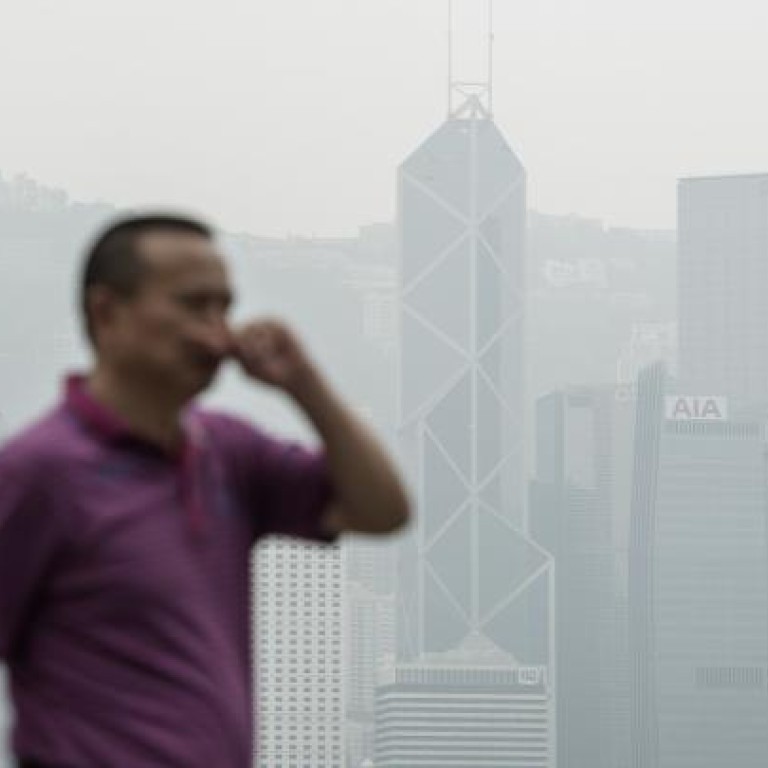
Can Leung pass first big test on the environment?
Edwin Lau says Hong Kong people expect the chief executive to introduce effective policies next week to tackle air pollution and cut waste
The government has vowed to tackle the major problems of air pollution and waste, so it will be interesting to see what proposals Chief Executive Leung Chun-ying will unveil in his first policy address next week. This will be the first big test of his vision and will to solve the pressing problems that affect our health and the city's sustainability.
It is common in this city to see elderly people collecting items that have been discarded. In this consumption-led era, people have little concern about waste problems. This is a social as well as an environmental problem. If Leung can set out appropriate policies, both problems could be addressed simultaneously.
According to the environmental index created by Professor Anthony Hedley, we have been paying very high health costs (some HK$3.2 billion last year) to treat patients with respiratory illnesses due to the air pollution cocktail we "drink" every day. Therefore, reducing air pollution will save lives and the huge social costs borne by taxpayers.
The Audit Commission has criticised the Environment Bureau for its ineffectiveness in complying even with its own targets for healthy air set 25 years ago.
Vehicles are the main culprit for poor roadside air quality, especially diesel trucks and commercial fleets of taxis, minibuses and buses. The government should apply both carrots and sticks to achieve results. It should set a timeline for phasing out highly polluting vehicles with emission standards of Euro III and below; provide subsidies to businesses to encourage them to scrap older vehicles; mandate half-yearly, instead of annual, emission tests for commercial fleets to ensure regular maintenance; and, set up low-emission zones for crowded areas that limit the entry of highly polluting vehicles.
Moreover, it should mandate the use of cleaner fuels for all ocean-going vessels entering Hong Kong waters. Since these vessels use fuel with a high sulphur content, they emit sulphur dioxide and particulates that exacerbate our air pollution.
The Kai Tak cruise terminal currently under construction and the existing terminals should also supply electricity to vessels at berth to cut pollution from their onboard generators.
As regards waste, the crux of our problem is the amount generated: in Hong Kong, the figure was 2.67kg per person per day in 2010, compared with the average of 1.48kg among developed countries. Education is needed, but it can take a long time before results are seen, so officials should apply the "polluter pays" principle to charge for waste generated. Incentives should also be given to encourage recycling. A comprehensive package of measures is needed to change our throwaway habits.
Leung said in his election manifesto that we must reduce waste at source to ease the demand for more landfills. He must act on his pledges.
Whether it is air pollution, energy and water wastage or the issue of overflowing landfills, the government should take a holistic approach with incentives and deterrents to tackle the problems.
The public is waiting to see how Leung fares in his first environmental test, with regard to these two critical problems.

